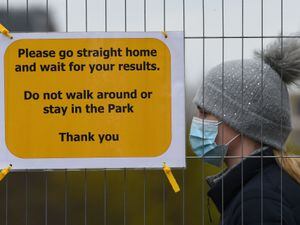One in three say self-isolating has negative effect on wellbeing
Most people are following self-isolation requirements for the full 10-day period.

More than a third of adults in England have found self-isolating after testing positive for Covid-19 has had a negative effect on their wellbeing and mental health, new figures suggest.
Some 36% of adults surveyed said self-isolation had a negative impact, while 59% reported no effect and 4% said it had a positive effect.
Around three in 10 people (28%) reported a loss of income, while 14% of those who had been working prior to self-isolating – either in or outside their home – said they were not paid during the self-isolation period.
The figures have been compiled by the Office for National Statistics (ONS), based on responses collected from adults between March 8 and 13.

All respondents had tested positive for coronavirus and were at the end of their 10-day self-isolation period.
The survey also asked people about how closely they had followed the rules for self-isolating after testing positive.
A clear majority (82%) said they had followed the requirements for the full 10-day period.
Some 79% of those with Covid-19 symptoms reported adhering to self-isolation rules between showing symptoms and receiving a positive test result, while in the 24 hours after receiving this result, adherence to self-isolation requirements rose to 97%.
The ONS said these figures should be treated with care, however.
The survey is based on a relatively small sample of respondents who have chosen to report their own behaviour, meaning their actions have not been monitored or checked independently.
Responding to the findings, Professor Robert West of the Department of Behavioural Science and Health at University College London gave three reasons why the survey needed to be approached with caution.
“First, the rate of reported self-isolation is much higher than that found in repeated surveys using a different sampling method,” he said.
“Secondly, the data rely on self-reporting in circumstances where the pressure to report having self-isolated is very high.
“Thirdly, this is a sample of people who have chosen to get tested, and responded to the survey and are therefore likely to be much more compliant than the average person. I therefore think there is a high risk that the headline figure is a significant overestimate,” he added.





